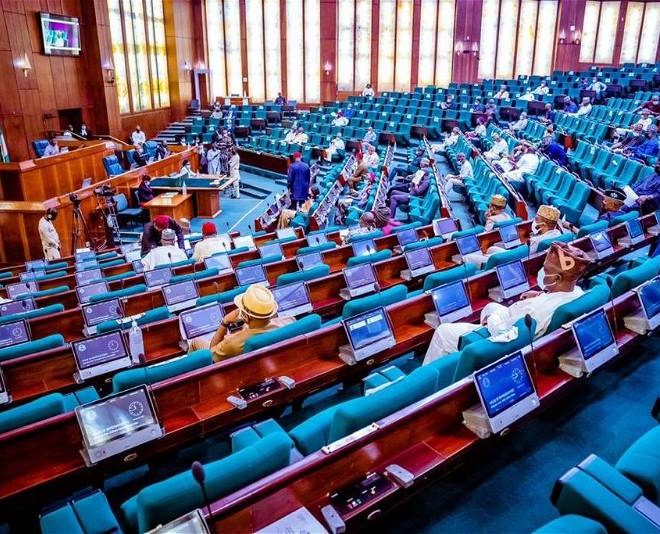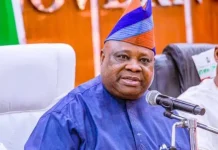🌿 Ruzu Non-Alcoholic Herbal Bitters
Ruzu Non-Alcoholic Herbal Bitters is a natural health supplement specially formulated to:
- ✅ Promote general wellness
- ✅ Detoxify the body
- ✅ Support the treatment of various ailments
Made from a powerful blend of 100% organic and medicinal herbs, Ruzu is completely alcohol-free, making it ideal for:
- 👪 All age groups
- 🌱 Health-conscious individuals
- 🌿 Anyone seeking non-alcoholic herbal remedies
Whether you're looking to boost your vitality, cleanse your system, or support healing the natural way, Ruzu Bitters offers a trusted herbal solution.
Nigeria’s House of Representatives is stirring national conversation with a proposed bill seeking a return to the country’s pre-independence anthem, “Nigeria, We Hail Thee.”
The current anthem, “Arise, O Compatriots,” adopted in 1978, has served as the nation’s rallying cry for over four decades. However, proponents of the switch argue that “Nigeria, We Hail Thee” better evokes a sense of patriotism and national unity.
Leading the charge is Representative Julius Ihonvbere, who anchored the bill’s debate during plenary on Thursday, in Abuja.
He emphasizes the need to rekindle a sense of national pride, suggesting that the current anthem may not resonate as deeply with the populace. This sentiment finds support among some Nigerians who view “Nigeria, We Hail Thee” as a more evocative symbol of the country’s fight for independence.
However, the proposal faces opposition. Critics argue that changing the national anthem disrupts a sense of national continuity and stability. “Arise, O Compatriots” has served as the soundtrack to Nigeria’s post-colonial journey, and some see altering it as a form of historical revisionism.
READ ALSO:Reps to probe NDDC erosion protection contract in Bayelsa
In his contribution, Chinda, a member of the Peoples Democratic Party (PDP) noted that the old national anthem was a colonial heritage which should not be considered in a post-independent Nigeria.
His argument was supported by the member representing Jere Federal Constituency, Borno State, Mr Ahmad Satomi.
Another Borno lawmaker, Ahmed Jaha, however, supported the bill arguing that the the wordings in the new anthem are verbal expressions that have no substance in the affairs of the Nigerian state.
The debate also extends to the practicalities of implementing such a change. Modifying the national anthem requires legislative approval and potentially an extensive public awareness campaign to familiarize citizens with the older anthem. The associated costs and logistical hurdles are considerations for lawmakers.
The coming weeks will be crucial as the bill progresses through the legislative process. Committee hearings and further debate will determine the level of public support and the viability of the proposal. Whether Nigeria chooses to revisit its past or remain with its current anthem remains to be seen. This move highlights the ongoing conversation about national identity and the symbols that bind a nation together.
If you like what we do, and are ready to uphold solutions journalism, kindly donate to the Ripples Nigeria cause.
















